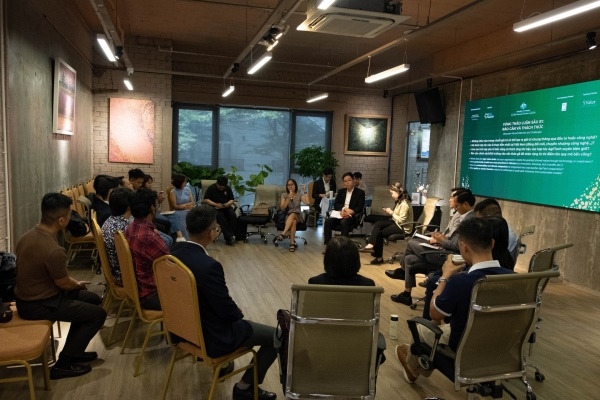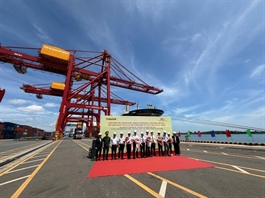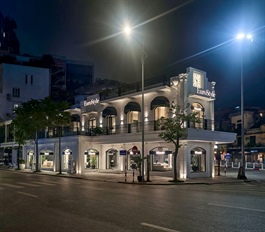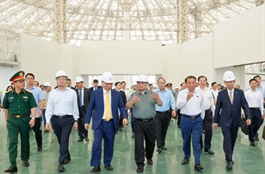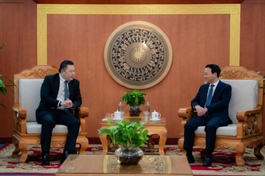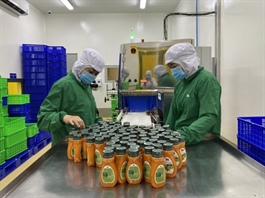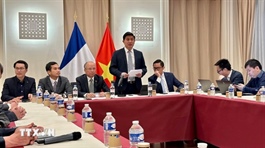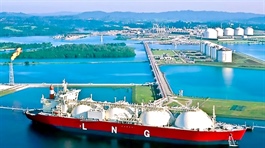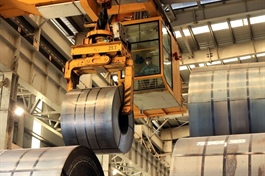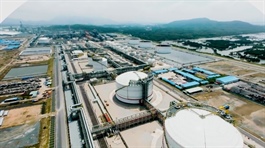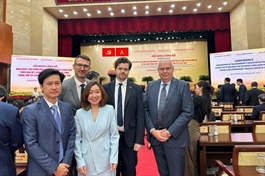Smart Agriculture Focus Group drives farming transformation
Smart Agriculture Focus Group drives farming transformation
The Australian Trade and Investment Commission (Austrade) held a workshop in Ho Chi Minh City on May 15 to discuss Vietnam's agricultural sector and to propose solutions towards modernisation.
|
The Vietnam Market Deep-Dive Series: Smart Agriculture Focus Group workshop was also held with contributions from the Startup Vietnam Foundation (SVF), and Dear Our Community (DOC) to discuss and identify barriers, opportunities, and emerging challenges in the development of smart agriculture in Vietnam.
At the event, Jonathan Saw, Australia’s Trade and Investment Commissioner for Vietnam and Cambodia, reaffirmed the strength of the Australia-Vietnam Comprehensive Strategic Partnership, particularly the two nations’ shared commitment to achieving Net Zero by 2050. "Austrade's desire is to encourage cooperation and share experiences in addressing the challenges and operational gaps in Vietnam's agriculture through advanced solutions and technologies," said Saw.
The workshop gathered policymakers, experts, and representatives from numerous businesses and organisations in agriculture and agricultural technology (AgriTech) in Vietnam, like Pan Group, TTC AgriS, Demeter, De Heus, Halo Philic, ViOT, Enfarm, Tep Bac, Neotiq, Shrimpl, and TerraTech, among others.
The workshop aimed to assess Vietnam’s agricultural landscape, pinpoint challenges, and explore smart technology solutions to drive productivity and value addition in the sector. In-depth discussions focused on key issues such as agricultural value chains, cooperation models, sustainability and climate adaptation, as well as trade and policy barriers.
Le Hong Minh, from consultancy firm i.Value, opened the discussion by raising the issue of Vietnam's labour productivity as compared to other countries in the region, emphasising the role of AgriTech in improving productivity and calling for an in-depth discussion to identify gaps in capacity and technology, and build an effective model for cooperation within the ecosystem.
"Each party must clearly define its role and specific responsibilities in promoting the innovation ecosystem in agriculture in the near future," said Minh.
Nguyen Hong Hiep, Pan Group’s External Relations director, said that the workshop was necessary to create motivation and opportunities for private enterprises and startups. Hiep also shared Pan Group's experience in removing barriers such as small-scale production, policy inconsistencies, limited farmer capabilities, and high initial investment costs.
"Pan Group has implemented solutions such as digital transformation in raw material area management; investment in high-quality varieties and climate change adaptation; strengthening value chain linkages and cooperation with technology partners; and incorporating advanced training," said Hiep.
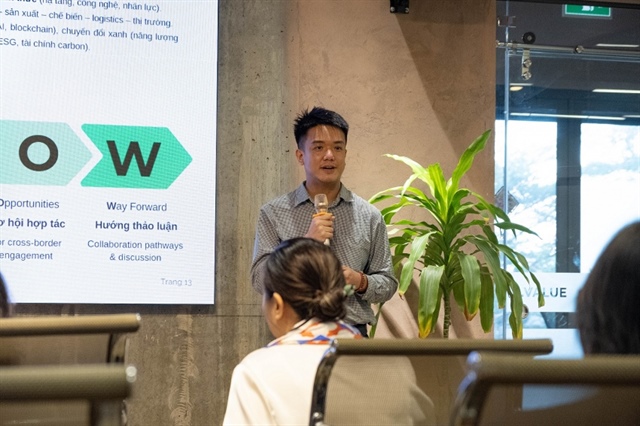
Le Minh Nhut, CEO of Demeter |
Demeter CEO, Le Minh Nhut, outlined development strategies for international cooperation in innovation and sustainable development, particularly as they affect small- and medium-sized enterprises (SMEs).
"Vietnam's SMEs make up 95 per cent of all businesses in the country, while more than 60 per cent of the population are working in rural areas. So they are struggling with major challenges such as access to finance, export markets, as well as barriers in technology and workers," said Nhut.
According to Nhut, there are currently over 300 AgriTech companies in Vietnam operating in various fields such as climate change adaptation, environmental monitoring, automation, and traceability, all of which are critical to improving production efficiency and agricultural product quality.
In addition, green capital is increasingly flowing into the sustainable agriculture sector, particularly into AgriTech. A notable example is Techcoop – a Vietnamese agricultural technology startup, which successfully raised $70 million in February, a positive signal reflecting the growing momentum of innovation investment in Vietnam’s smart agricultural sector.
Vietnam aspires to become a global leader in modern, smart agriculture by 2050, leveraging its competitive advantages, such as expansive fertile land, growing demand for premium agricultural products, strong export potential, and opportunities to pioneer sustainable farming practices.
Other industry leaders shared their operational insights, highlighting both hurdles and opportunities in agri-tech adoption. While noting high implementation costs for the Internet of Things and challenges in drone investments, they emphasised the potential of smart agriculture hubs to streamline value chains and optimise efficiency.
Aquaculture sector insiders highlighted key challenges, including limited access to capital and slow technological adoption. To boost productivity, stakeholders proposed innovative solutions such as saltwater-tolerant intercropping in shrimp farming.
Discussions also focused on bridging the gap with developed nations through improved infrastructure planning, quality raw material sourcing, and advanced weather/pest monitoring systems, all critical steps towards sustainable growth and tangible benefits for farmers.
|
The Smart Agriculture Focus Group workshop brought together industry leaders to share innovative approaches and practical insights for advancing Vietnam's agricultural modernisation.
Business leaders pledged to enhance collaboration and accelerate technology adoption, with the goal of establishing a digital, efficient, and sustainable agricultural sector. These efforts aim to strengthen the global competitiveness of Vietnamese agricultural products.
The workshop outcomes are expected to serve as a catalyst for Vietnam's smart agriculture development, positioning the country as a regional leader in agricultural innovation.
- 13:50 20/05/2025


